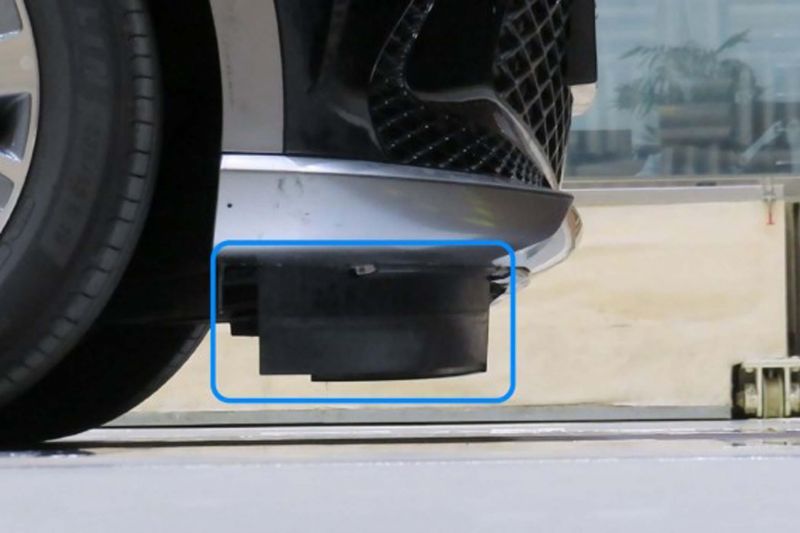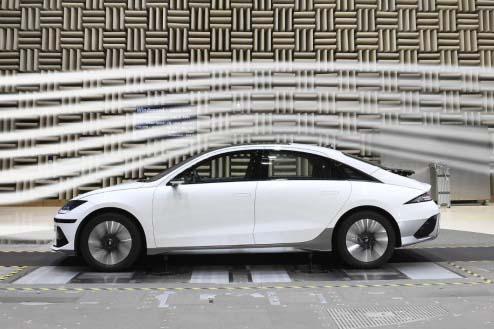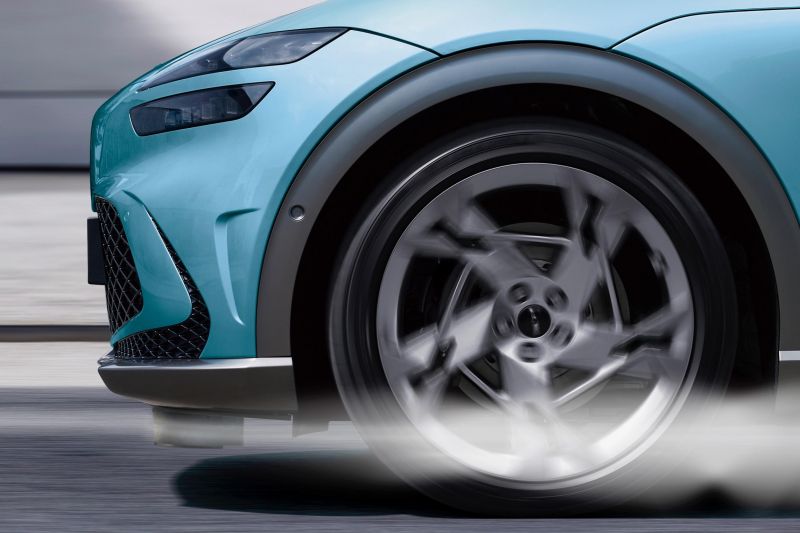Hyundai Motor Company and Kia Corporation have detailed a new feature that could give their electric vehicles (EVs) greater range, traction and stability.
Previewed on the Genesis GV60, the Active Air Skirt (AAS) – nestled between the front bumper and wheels – is intended to reduce drag, and is deployed at speeds over 80km/h. It can even operate at speeds beyond 200km/h.
During testing on the GV60, the carmaker has been able to reduce the drag coefficient by 0.008, improving drag by 2.8 per cent and increasing range by around 6km.
The system will remain hidden until activated. It then retracts at 70km/h; Hyundai says the speed difference is to prevent frequent deployment and retraction at specific speed ranges.
Hyundai says the design of the skirt only covers the front part of the tyres without extending to the whole section underneath the front bumper; the company says it doesn’t need to span the full width as the E-GMP platform’s floor is already flat.
The skirt is made from a rubber material, which reduces the risk of external objects damaging the vehicle’s underbody at high speeds.
The system will control the air that enters through the lower part of the bumper and control the turbulence around the wheels by continuously adjusting according to the vehicle speed.
Hyundai says the feature has been specifically designed for vehicles underpinned by the E-GMP platform (Electric Global Modular Platform), which include the Genesis GV60, Hyundai Ioniq 5 and Ioniq 6 as well as the Kia EV5, EV6 and EV9.
The company says it has applied for patents in South Korea and the United States, and plans on putting the technology into mass production once further durability and performance tests have been conducted.
“This technology is expected to have a greater effect on models such as SUVs where it is difficult to improve aerodynamic performance,” said vice president and head of mobility body development group at Hyundai Motor Group Sun Hyung Cho.
“We will continue to strive to improve the driving performance and stability of electric vehicles through improvements in aerodynamics.”
Hyundai Motor Group has already been working on various aerodynamic enhancements to maximise efficiency, including active air flaps, wheel air curtains, wheel gap reducers and separation traps.
Hyundai Motor Group isn’t the first carmaker to develop active skirts.
The Toyota Tundra – which was recently launched in Australia – offers similar technology, while electric cars like the upcoming Porsche Macan will feature an active aerodynamic system.
In the Porsche, this includes active cooling flaps on the front air intakes, variable elements on the underbody, as well as an extending rear spoiler.



